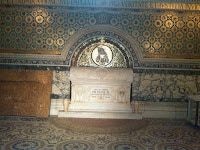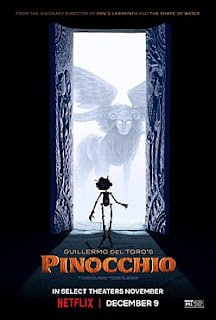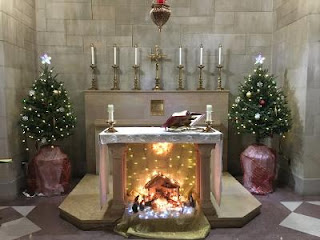(Photo: Tomb of Blessed Pius IX, Basilica of Saint Lawrence Outside the Walls in Rome, taken by me in 2012.)
Homily for the feast of Blessed Pope Pius IX [1792-1878, pope from 1846 to 1878], Paulist Fathers Mother House Chapel, February 7, 2023.
Sometimes, when I get discouraged in my postulator assignment, I recall how Pope Saint John XXIII wrote of Pius IX: « I would like to be worthy to celebrate his canonization. » Pope John was disappointed in that aspiration, but presumably he got over it.
Pius IX’s pontificate intersected – fortunately for all of us here – with the priesthood of Isaac Hecker. As Pope, Pius IX was part of the complex of forces and personalities that Divine Providence mysteriously brought together to make the Paulist Fathers a reality, inspiring in Father Hecker a lifelong respect and devotion towards the Pope who, at their first meeting had affectionately called him « Bravo, Bravo! »
It was at that first meeting that Hecke had famously expressed his vision of the Catholic Church as oil on the troubled waters of the then religiously divided and politically polarized United States. For all that has happened since, the waters seem just as troubled now as then. But do we still have the confidence that he had in the healing power of Christ’s Church in our troubled time?
In good 19th-century style, Hecker understood the Church as Christ’s continuing incarnation, continuing his healing and saving life and mission in our world – and meeting just as many obstacles as Jesus himself had! As far as we know the Pharisees were generally very good people, perhaps among the best of their time and place. But like so many religious people, then and now, they were stuck in « This is the way we’ve always done it. » We always wash our hands, why don’t you? [Mark 7:1-13].
(Actually, I think that probably wasn’t such bad advice, but that’s another discussion for another day!)
The problem with being stuck in the « This is the way we’ve always done it » mindset is that it makes it hard to notice anything new, anything different. There, right there, was Jesus, the Word-made-flesh, the Savior of the world, but the Pharisees were so busy washing their hands, doing what they’d always done, that they missed what God was doing.
If we really aspire to be oil on the troubled waters of our deeply divided and politically polarized world, we may need something more than « This is the way we’ve always done it. » We need to be alert to where Jesus is pointing us and how he is challenging us today.





